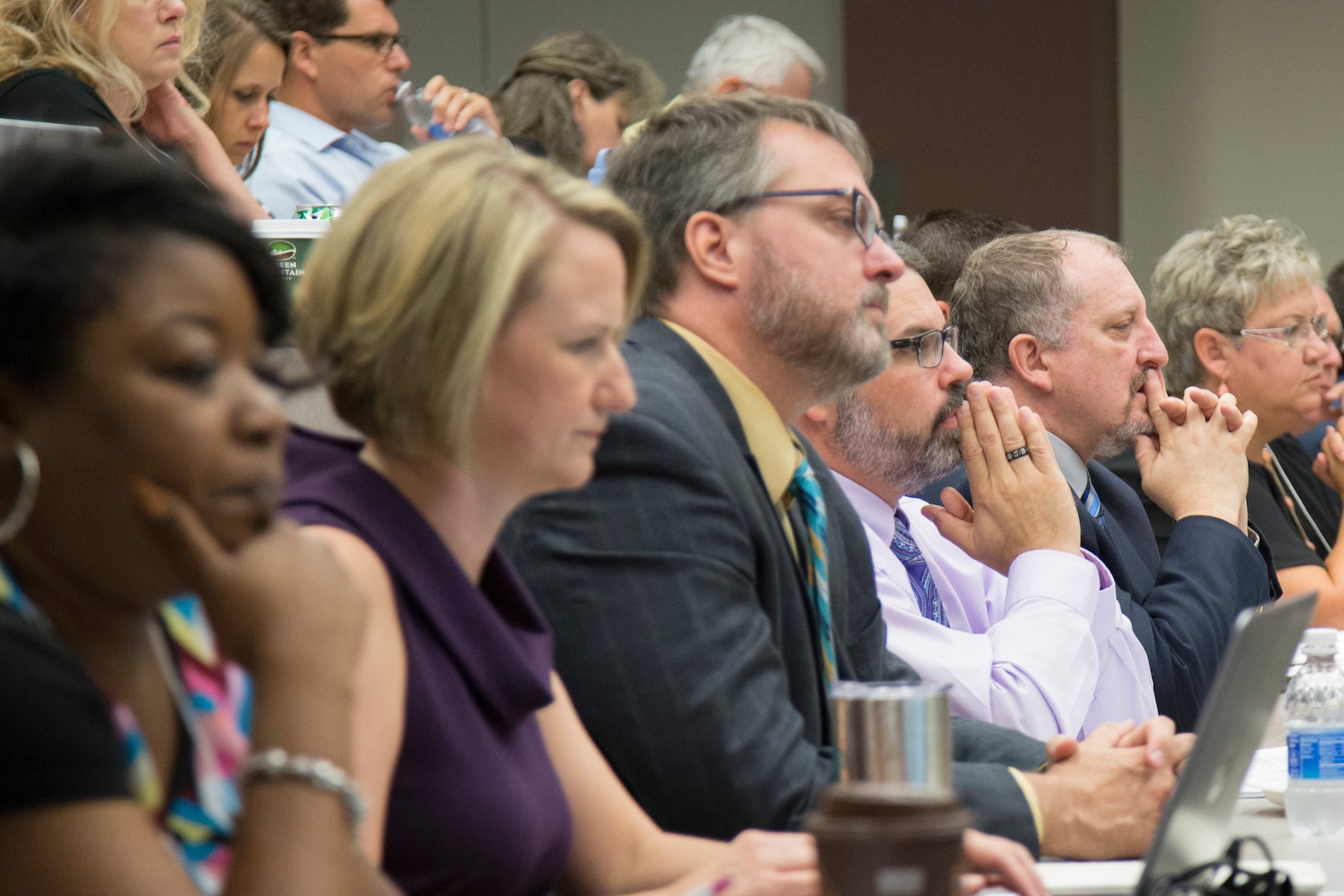Working with Advisory Boards and Committees
- Chapel Hill, NCMarch 6, 2026

Working with Advisory Boards and Committees is open to local government professionals and elected officials. Elected officials will receive six LELA 201-course credits.
One of the most common and substantive ways citizen participation in local government occurs is through service on appointed advisory boards (CABs) (also sometimes called committees, commissions or task forces). While some CABs are statutorily mandated, most are created at the discretion of governing boards in order to provide community input for various local government functions.
How can local governments get the most out of CABs?
What practices yield positive results for the organization as well as a positive experience for citizen volunteers?
What You’ll Learn:
- Important nuts-and-bolts, including clarifying roles and expectations; recruiting, appointing, and training volunteers; staffing and managing committee work; and evaluating CAB effectiveness
- Exercises to address key issues and promising practices from their experience
*Participants will be asked to complete a pre-workshop survey. The survey will be sent out in advance.
LELA Level: This is a 201 Level course in the Local Elected Leaders Academy. Participating elected officials will earn 6 credits toward their Practitioner recognition certificate.
Members of Civic Federal Credit Union (Civic) are eligible to apply for a scholarship towards registration fees for programs offered by the School of Government. There are four deadlines to submit applications:
- March 1: for programs starting between April 1 and June 30
- June 1: for programs starting between July 1 and September 30
- September 1: for programs starting between October 1 and December 31
- December 1: for programs starting between January 1 and March 31
The North Carolina Association of County Commissioners provides cost offsets for county elected officials to attend LELA courses. For information on this discount please click the link below.
- Chapel Hill, NCMarch 6UNC School of Government
Knapp-Sanders
400 South Rd
Chapel Hill, NC 27514View Scholarship Information
Members of Civic Federal Credit Union (Civic) are eligible to apply for a scholarship towards registration fees for programs offered by the School of Government. There are four deadlines to submit applications:- March 1: for programs starting between April 1 and June 30
- June 1: for programs starting between July 1 and September 30
- September 1: for programs starting between October 1 and December 31
- December 1: for programs starting between January 1 and March 31
The North Carolina Association of County Commissioners provides cost offsets for county elected officials to attend LELA courses. For information on this discount please click the link below.
View Cancellation PolicyCourse participants who cancel their registration on or before February 26, 2026 will receive a full refund. No refund will be made for cancellations on or after February 27, 2026, but you will receive a transferrable credit to be used within 12 months. Click here to view the School’s full cancellation and refund policy.$225.00Registration and payment for this course grants access for a single attendee. In order to register a group of attendees, please register each person individually. If you have questions, please contact our registration office at registration@sog.unc.edu or 919.966.4414.
Participants will receive a copy of Creating and Maintaining Effective Local Government Citizen Advisory Committees (Vaughn M. Upshaw, 2010) as well as an after-workshop report.





